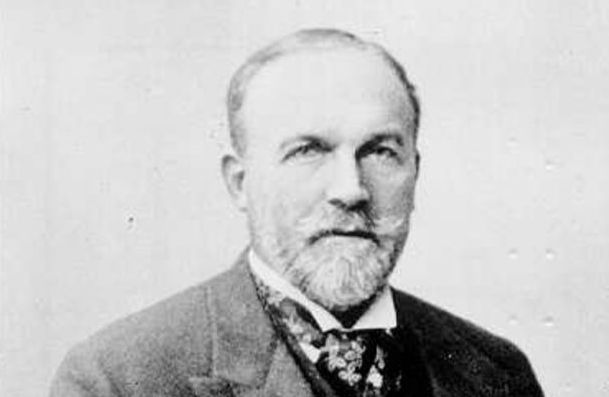PHILIP, PRINCE ZU EULENBURG-HERTEFELD, politician and diplomat of imperial Germany was born (d. 1921); Those who think that Oscar Wilde was the only popular figure crucified for the love that dare not speak its name, don’t know their German history. The Eulenberg trial, if anything, was even smarmier than the Wilde case, since the reasons for “exposing” the well-liked and gentle Eulenberg were strictly political.
Upon the accession of his friend Wilhelm to the thrones of Prussia and Germany, count Eulenburg assumed an unofficial position of immense influence, and among other things, was instrumental in the appointment of Bernhard von Bulow as head of the foreign office in 1897.Wilhelm II had long desired the appointment of “his own Bismarck” – a powerful chancellor who would enact the Kaiser’s will – and Eulenburg was the first to suggest Bülow for this role.
In 1900, count Philip was created Prince of Eulenburg and Hertefeld, and to continue his wife’s otherwise soon-to-be-extinguishing comital name, also Count of Sandels. Count Philip of Eulenburg married at Stockholm on November 20, 1875 Augusta Sandels (Stockholm May 12, 1853- Liebenberg December 14, 1941), daughter of the last Count Sandels. Sources say that he continued his “individual” lifestyle also after the marriage. They had eight children.
The favorite of Kaiser Wilhelm II, Eulenberg had attempted to dissuade the emperor from a militaristic course and naturally had to be disposed of in the quickest way by the merchants of death. Although he was married, Eulenburg was connected in homosexual liaisons with members of the Kaiser’s inner circle, including count Kuno von Moltke, the military commander of Berlin. Smeared as a “degenerate” by his enemies, the oldest political trick in the book, Eulenberg was swiftly ruined. The public exposure of these liaisons in 1907 led to the Harden-Eulenburg Affair. In 1908 Eulenburg was placed on trial for perjury due to his denial of his homosexuality; the trial was repeatedly postponed due to Eulenburg’s claim of poor health. Eulenburg died in 1921. Historians speculate that without Eulenburg’s moderating influence, Kaiser Wilhelm stumbled into World War I.
